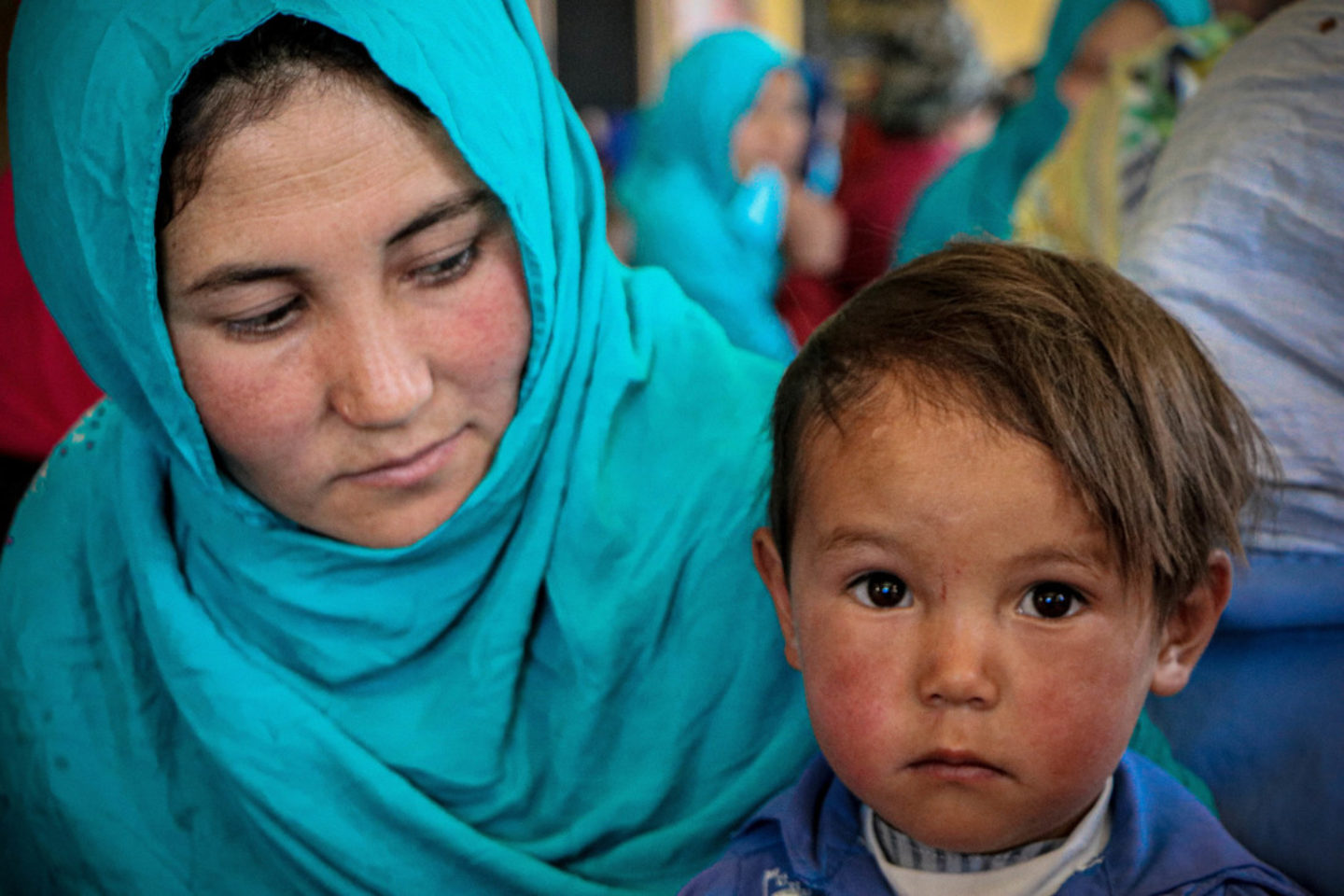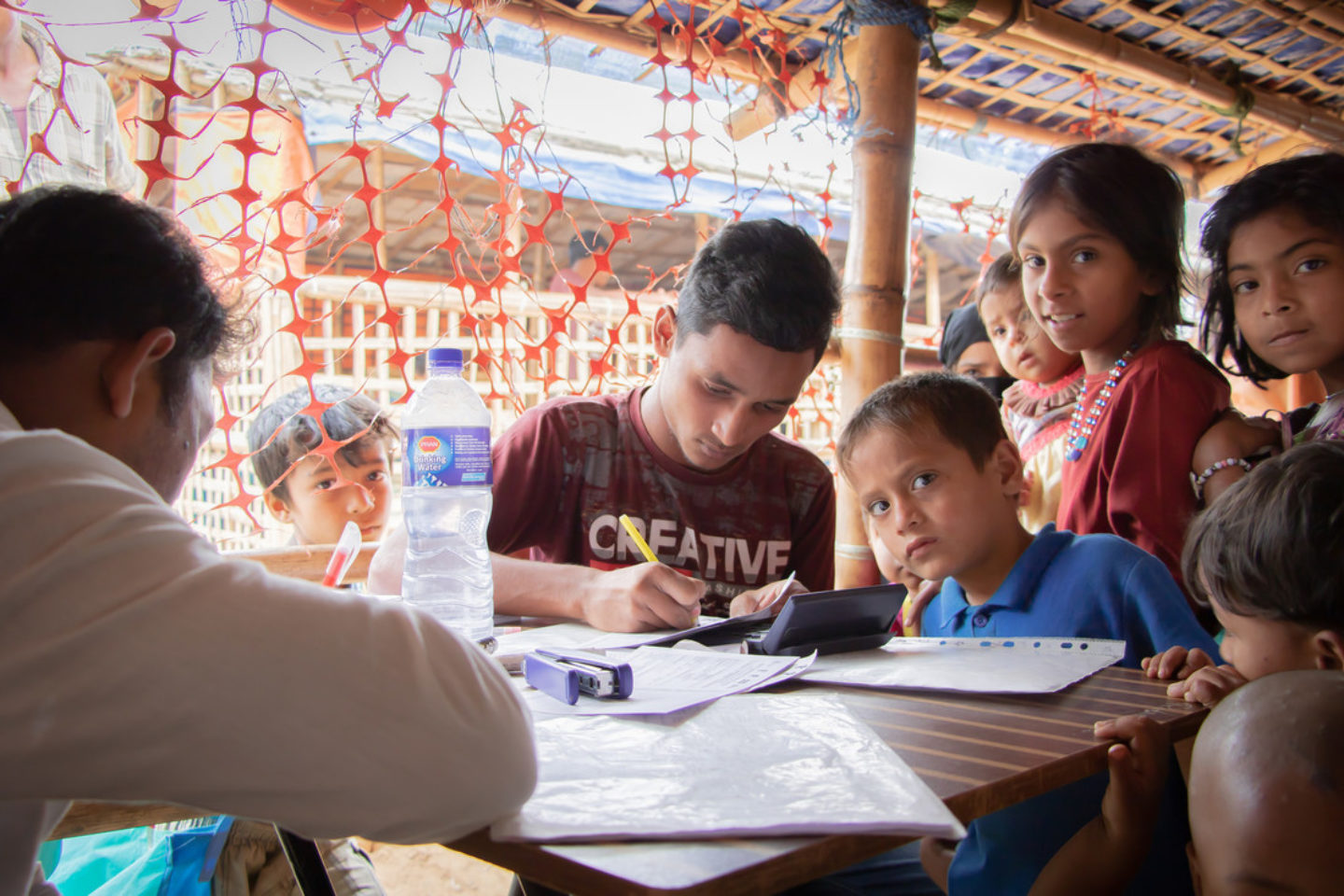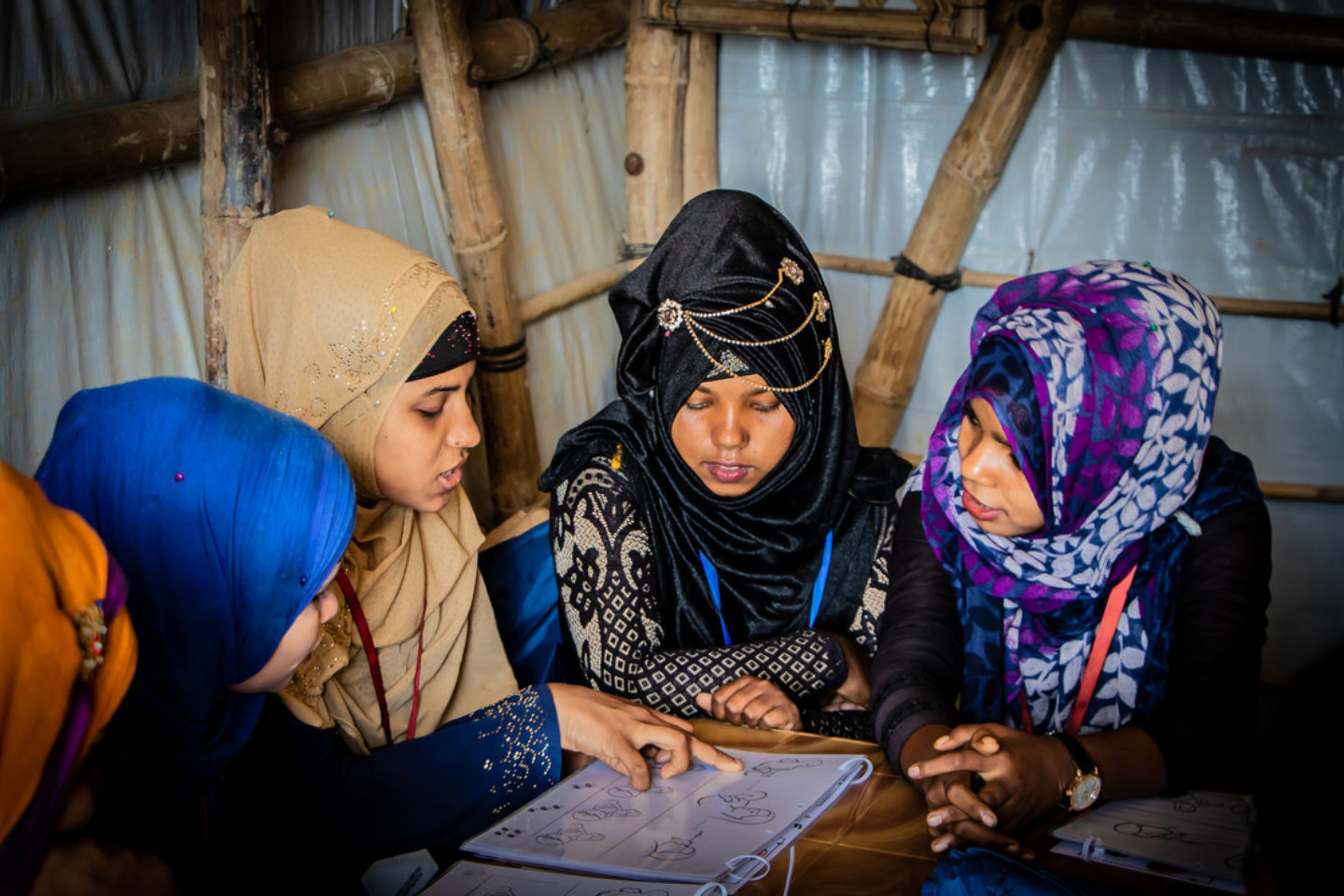Stories from Afghanistan
It Takes a Village
Partnering with volunteers to support affected communities
“I want to support my community. Before, no one knew about malnutrition. Now, I can tell them. I can help. We don’t want to see any more children malnourished.”
As he speaks with our team, 23-year-old Fahim*’s attention momentarily turns to the room he is sitting in. Mothers, with children in tow, have gathered in a community facility to receive treatment from a Medair nutrition team. While a doctor and nurse examine each mother and child, Fahim’s voice is barely perceptible over the cries of babies thoroughly unimpressed at having to be measured and weighed.
He tells us he has lived in this village ever since he was 2-years-old. Tucked away deep in a valley of the Central Highlands of Afghanistan, this isolated community struggles to gain access to any kind of essential services, such as health care or basic nutritious food. The nearest city, which would take days to walk to, can only be reached by a winding mountain pass. During the long winter months, the harsh weather conditions mean the journey is all but impossible.
When our team first arrived to provide urgent nutrition treatment, Fahim and his wife Roya both volunteered to help. His friend Amir, 25 year old, and his wife Diba decided to do the same. “We visit each family in this village”, Fahim tells us. “We screen children, and if they are malnourished, we refer them to the nutrition team.” The day before the appointment with our team, volunteers visit households to ensure no one misses it.
 A mother and her son attend a consultation with Medair’s nutrition teamand local volunteersin the Central Highlands of Afghanistan. © Medair
A mother and her son attend a consultation with Medair’s nutrition teamand local volunteersin the Central Highlands of Afghanistan. © Medair
Although the two young couples would never say as much, their work is saving lives: “Two of the children we referred to the team were suffering from severe acute malnutrition. Today, they are cured,” Fahim says, smiling timidly.
Fahim, Roya, Amir and Diba are just four of hundreds of volunteers we partner with in Afghanistan, and four of over 5,000 around the world with Medair. Humanitarian aid can at times be perceived as planes full of foreign workers pouring in to a country, providing assistance on their own terms and based on their own understanding of needs. And while progress around involving communities certainly needs to be made, the reality for our teams on the ground is very different.
Building trust
In every community we work in, our first priority is always to build relationships and trust. Volunteers are an essential part of achieving that. “I was born here, I grew up here. I know everyone, and everyone knows me.” Mohammad, a volunteer in another Afghan village, says proudly.
A volunteer’s knowledge of their community, its culture and of its needs is deep rooted. They know every child by name, every sick mother, every village elder. They are keenly aware of the challenges their community faces, and are best positioned to help us address them effectively.
A sense of purpose
In the midst of very challenging circumstances, volunteers often tell us they find a sense of purpose, of hope even, in the responsibilities entrusted to them.
For refugees in particular, who are often not allowed to work in their host countries, it gives meaning to their day. Living in a situation where everything has been taken away, they are empowered to bring positive change to their family, friends and neighbours. They know that people are counting on them, and are determined to see situations improve. They take full ownership of projects and lead their communities to successfully implement them.
 Mounir*, a Rohingya Site Volunteer, provides new ration cards to mothers and children at a World Concern / Medair nutrition clinic in Kutupalong Refugee Camp, Bangladesh.
Mounir*, a Rohingya Site Volunteer, provides new ration cards to mothers and children at a World Concern / Medair nutrition clinic in Kutupalong Refugee Camp, Bangladesh.
The purpose volunteers find in this work is best displayed by their energy and enthusiasm – at times finding any opportunity they can to impart what they have learnt. “One day, there was a big party in the village,” Mohammad recalls. “People came from all across the valley. I thought: ‘Why not share our messages with them?’ So I got up and told everyone there about the importance of good nutrition.”
Outlasting our presence
One of the main challenges facing the humanitarian community today is how to make aid sustainable. How does the impact of our work long outlast our presence on the ground? Training people as volunteers is part of the answer. As international and national staff members gradually leave once projects are completed, volunteers are equipped to ensure their community keeps moving forward.
The skills they acquire can also open up new opportunities. The volunteers we partner with are at times still very young, barely in their early twenties. Due to their circumstances, many have not had the chance to receive a formal education. We hope the skills they acquire through volunteering – in health, nutrition, shelter, masonry, etc. – can be an investment in a brighter future. Ahmad, who volunteers with our Health team in Bangladesh, shared: “I want to continue to work in the health sector one day, when I am able to go back to Myanmar.”

Rohingya Health Volunteers participate in a training on promoting essential health practises in Kutupalong Refugee Camp, Bangladesh. © Medair
From Bangladesh to Afghanistan or South Sudan, the challenges communities face are of course very different, though just as overwhelming. Hope can easily be lost. Yet, volunteers find the strength and resilience not only to carry on, but to be an active part of the solution. They refuse to be defeated. Put simply, giving up is not an option to them.
As aid organisations, we should never take for granted their contribution, their knowledge, and their value. We should always be mindful of our volunteers’ needs, of their wellbeing, of the potential stresses linked to their responsibilities. We must ensure they are protected and cared for in the work they do, just like any aid worker, and always ensure that this remains a partnership on equal footing. So together, working hand-in-hand, we can continue to support people and communities with trust, purpose, and sustainable solutions.
How you can become a volunteer
We are grateful for every one of our volunteers in our field programmes. They are transforming their communities and literally helping to save lives.
We also rely on the support and skills of volunteers at our Global Support and Affiliate offices around the world. Click here to learn more about volunteering with Medair and how you can contribute right where you are, or contact an office near you.
*All names have been changed for security purposes
